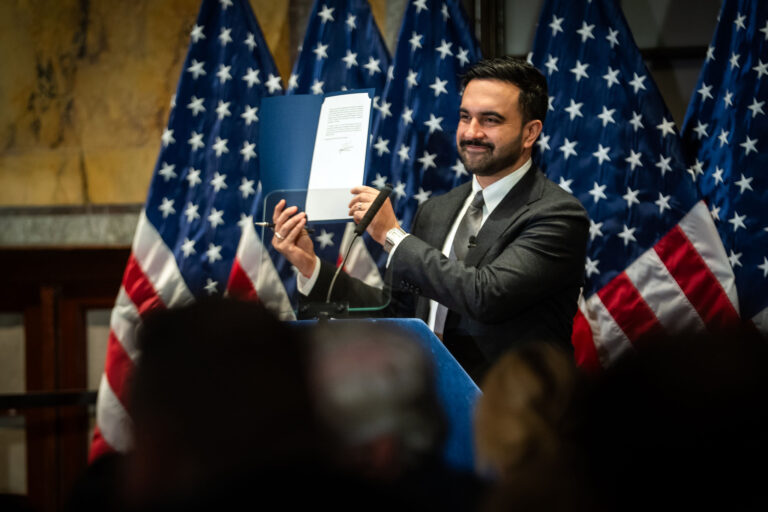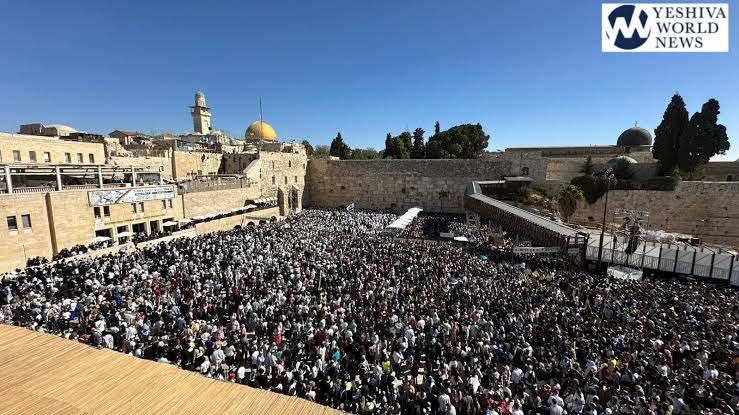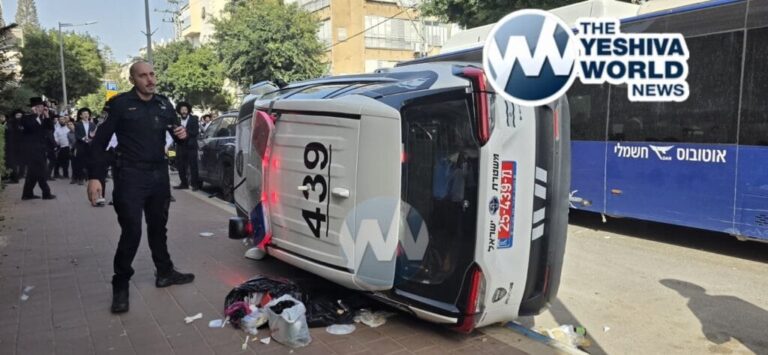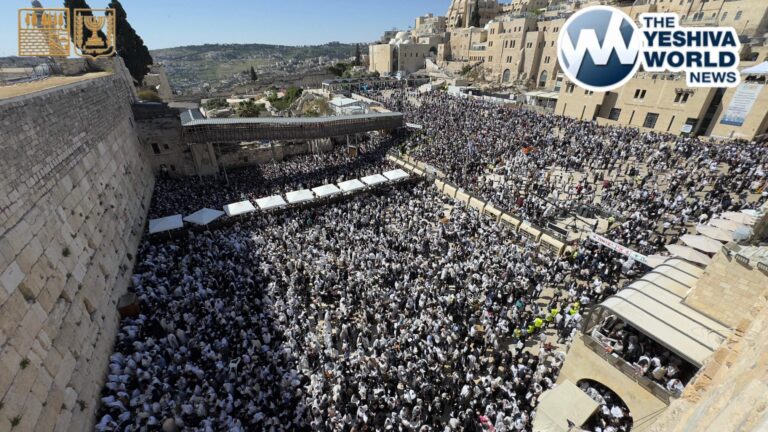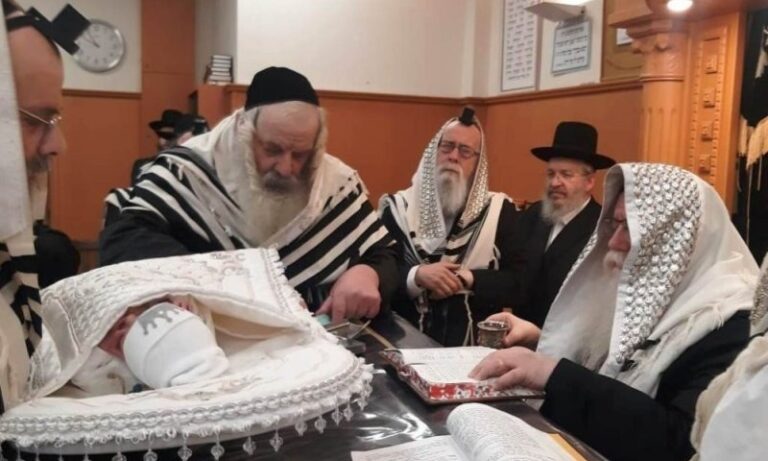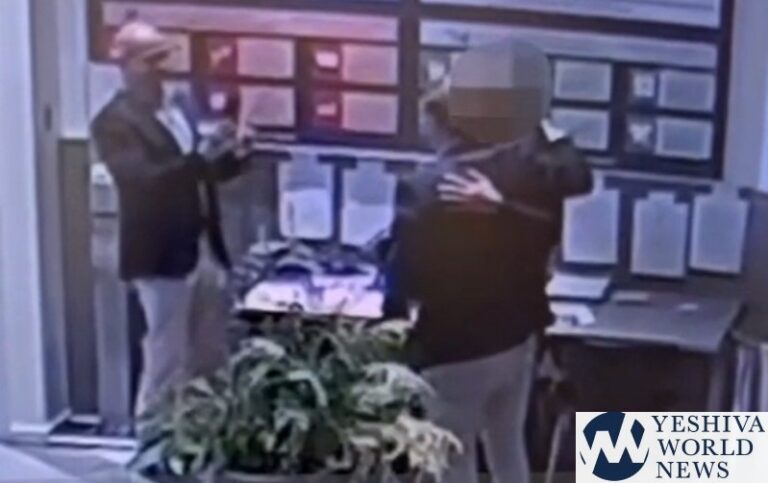Written By Rabbi Moishe Lebovits
KOF-K Kosher Supervision
Many people work late, especially in the kashrus world where mashgichim go to distant plants. The question arises as to what they should do about lighting Chanukah candles. Some activities are prohibited once the time to light arrives (i.e. eating and working). If so, how can one still be at work at this time? What time is the best time to light and should one make it his business to come home early during Chanukah so that he can light at the proper time? These issues and others will be addressed in this article.
Learning, Eating, Working, etc. before Lighting
Once the time to light the menorah arrives, it is forbidden to learn,[1] eat, or do other activities.[2] Eating is forbidden a half-hour before.[3] One who started within this time must stop,[4] but if he started before this time, he may continue.[5] “Eating” applies to a shiur of a meal of mezonos, or more than a kebeitzah of bread.[6] If one is not eating mezonos as a meal it is permitted. One can eat fruit and drink (except wine) as much as he wishes.[7] According to some poskim, women who do not light themselves do not have this restriction.[8] However, the custom is to be stringent if she is not weak.[9]
Based on the above, some poskim suggest that one should leave before the half-hour of the time to light arrives,[10] but this is difficult. In most cases, one need not leave work early. First of all, the only concern is that one might become engrossed in his work.[11] A salaried worker, who works from nine to five, need not be concerned about this. In addition, the opinion of the Rama (see below) is that since we light inside there is no need to be concerned for the time to light of tichlah… Although the Rama says that one should be careful, one can be lenient when he has to work.[12] Furthermore, one can appoint a shomer who is not working to remind him to light.[13] Additionally, since the work session began long before the time to light, there is no need to stop working once the time for lighting has arrived.[14]
The Time to Light[15]
The opportune time to light Chanukah candles is at shkiah.[16] (This is the custom in Eretz Yisrael for those who go in accordance with the Gra.)[17] Some of the poskim say that this does not mean shkiah as we know it, but it means tzeis hakochavim.[18] Some identify tzeis hakochavim as twenty minutes after shkiah,[19] while others say that one should light ten minutes after shkiah.[20]
One who is busy and will not have time to light later[21] can light from plag haminchah[22] with a brachah.[23] One who did not light the candles then may light “ad shetichlah regel min hashuk,” until people have left the marketplace.[24] The Rama[25] holds that since we light inside, there is no need to be concerned with the time. Nonetheless, one should be careful with this as well.[26] The opinion of the Rambam[27] is that the above shiur of tichlah… is a half-hour after night (tzeis)[28] or more. Therefore, enough oil has to be placed in the menorah to last until then.[29] In practical terms, for those who do not follow with the times of Rabbeinu Tam, this is fifty minutes after shkiah.[30] This applies even for those who light the menorah inside (outside of Eretz Yisrael).[31] These calculations are based on the assumption that the time frame of tichlah… is a half-hour after tzeis hakochavim. This is not so simple.
There were no streetlights in earlier days, and very few people would be on the streets late at night. Today, people walk in the streets until much later at night. Therefore, people will see the Chanukah lights until a much later time. Some explain that stores are open later, and people return home much later at night.[32] Accordingly, many poskim say that the time of “ad shetichlah regel min hashuk” is much later.[33] This obviously depends on the neighborhood. For example, the streets of Boro Park do not quiet down until 1:00am.[34] Therefore, one should put enough oil to burn until then.[35] In addition, one can light l’chatchilah until that time.[36] However, there are those who say that the change of our nocturnal habits has no impact on the shiur.[37] One proof to this is that in the time of earlier poskim people already kept later hours at night, yet there is no mention that the shiur of a half-hour after tzeis should be changed.[38]
Even according to those who say the shiur changed and the candles should burn until later, it is not a requirement, but merely an appropriate act.[39]
Bedi’eved, one may light with a brachah[40] all night[41] until alos hashachar (if people are up).[42] One who lights late at night should make sure that people are awake[43] (in order to publicize the miracle)[44] in his home to see the lights.[45] One who lit without anyone being awake does not have to be rebuked.[46]
Ma’ariv before or after Lighting
There is an interesting question regarding when to daven Ma’ariv on Chanukah. There are those who opine that Ma’ariv precedes the menorah, based on the concept of “tadir v’she’eino tadir tadir kodem” (the more frequent mitzvah comes first).[47] Others say that one should light first in order not to miss the opportune time to light.[48] The Mishnah Berurah[49] says that one who usually davens Ma’ariv after tzeis should light before he davens.[50] If the time of tzeis arrives before one lights, then he should daven Ma’ariv first. In any case, the Biur Halachah[51] maintains that it is proper to light before Ma’ariv.[52] One who lights after Ma’ariv should still prepare the menorah beforehand so he can light immediately after Ma’ariv, in order to light a half-hour after tzeis. Those who always wait seventy-two minutes after shkiah to daven Ma’ariv should light after Ma’ariv.[53] One who has a set minyan where he always davens Ma’ariv should daven at that time and light before Ma’ariv.[54]
Working People and Someone Lighting at Home
From the above, it is apparent that one who cannot make it home at the beginning of the night can light when he comes home, even if is very late at night. However, he should make sure someone from his household is awake.
There is another solution to this problem.
If one knows that he will not be at home until much later at night, there are those who suggest that his wife should light for him at the correct time.[55] However, others say that she should wait until her husband comes home because of shalom bayis.[56] It is related that the rebbi of the Chafetz Chaim zt”l would wait to light until his wife came home because of shalom bayis. Others say that one should have in mind not to be yotzei with his wife’s lighting, and then he can light with a brachah when he comes home if people are up (l’chatchilah).[57]
Business Trip
One who is not home at all for Chanukah (i.e. he is on a business trip) should discuss the situation with his rav before leaving.
[1] One who is learning in a yeshivah or kollel is not required to stop learning in order to light if someone will remind him to do so later on (opinion of Harav Moshe Feinstein zt”l quoted in Moadei Yeshurun 1:page 8:footnote 109). Refer to Shraga Hameir 8:18:2 regarding what one who is learning in yeshivah should do once the time for lighting has arose. Also see Mekadesh Yisrael 145, 152, Halichos Chaim 1:pages 127-128:392, Halichos Shlomo Moadim 16:footnote 2, Mipeninei Harav pages 188-189.
[2] Magen Avraham 672: 5, Taz 1, Elya Rabbah 1, Ben Ish Chai Vayeishev 1:7, Kitzur Shulchan Aruch 139:10, Mishnah Berurah 10, Aruch Hashulchan 7, Kaf Hachaim 4.
[3] Sha’ar Hatzion 13, 15. Orchos Rabbeinu 3:page 17:51.
[4] Elyah Rabbah 1, Magen Avraham 672:5, Mishnah Berurah 1. Refer to Yad Ephraim 672 on this.
[5] Nitei Gavriel Chanukah page 32:2:footnote 3.
[6] Halichos V’hanhagos (Harav Elyashiv zt”l) page 7. Refer to Mishnah Berurah 232:34, Ohr Yisrael page 136:4.
[7] Halichos V’hanhagos (Harav Elyashiv zt”l) page 7. Refer to Mishnah Berurah 232:34, 639:13, Ohr Yisrael page 136:4.
[8] Halichos Olam 1:page 63:12, Ohr Yisrael page 137:7. Refer to Meiy Chanukah pages 12-13, Shoshanas Yisrael page 38.
[9] B’tzel Hachachmah 4:58, Nitei Gavriel Chanukah page 32:3, Halichos Shlomo Moadim 16:3, Chut Shani Ribbis page 143, Rivevos Ephraim 4:163:29, opinion of Harav Chaim Kanievsky shlit”a quoted in Ohr Yisrael page 137:footnote 574, see Rivevos Ephraim 4:163:29, 5:434:2. Refer to B’tzel Hachachmah 4:60.
[10] Refer to Halichos V’hanhagos (Harav Elyashiv zt”l) page 7.
[11] Halichos V’hanhagos (Harav Elyashiv zt”l) page 7.
[12] Refer to Piskei Teshuvos 672:footnote 33.
[13] Orchos Rabbeinu 3:page 16:50, Nitei Gavriel Chanukah page 32:4.
[14] Meiy Chanukah page 13.
[15] This discussion DOES NOT pertain to lighting on Erev Shabbos Chanukah.
[16] Refer to Maseches Shabbos 21b, Ran Maseches Shabbos page 9 “d’iy,” Rambam Hilchos Megillah V’Chanukah 4:5, Beis Yosef 672, Yosef Ometz 1073, Massei Rav 235, Biur Halachah “lo.” Ohr Yisrael Chanukah page 101:footnote 407. See Toras Chaim page 100:5 quoting the opinion of Harav Yosef Chaim Sonnenfeld zt”l. See Rivevos Ephraim 2:182:2, 4:163:11, 7:204.
[17] Refer to Mitzvas Ner Ish U’beiso pages 334-340, Moadim U’zmanim 2:154, Piskei Teshuvos 672:1, Az Nidberu 7:70, Mekadesh Yisrael 130.
[18] Tur 672, Bach, Shulchan Aruch 1, Elyah Rabbah 1, Magen Avraham 1, Machatzis Hashekel 1, Be’er Heitev 1, Chayei Adam 154:18, Kitzur Shulchan Aruch 139:10, Mishnah Berurah 1, Aruch Hashulchan 4, Kaf Hachaim 2, Mekadesh Yisrael 130. Refer to Taz 673:9.
[19] Harav Yisroel Belsky shlit”a, see Az Nidberu 7:70, Moadim U’zmanim 6:84, Igros Moshe O.C. 4:101, Ohr Yisrael Chanukah pages 102-103:footnote 411, She’eilas Rav page 398:7, Doleh U’mashkeh page 235, Orchos Rabbeinu 3:pages 13-14:35-36, see ibid:page 14:37-43, Teshuvos V’hanhagos 2:334, Emes L’Yaakov 672:footnote 586. Harav Yisroel Belsky shlit”a lights 50-60 minutes after shkiah.
[20] Igros Moshe O.C. 4:101:6, Halichos V’hanhagos (Harav Elyashiv zt”l) page 5, Peninei Chanukah pages 150-151, see Igros Moshe Y.D. 2:79, Moadei Yeshurun Chanukah page 7:footnote 86, see Rivevos Ephraim 4:163:11 which says that Harav Moshe Feinstein zt”l was quoted as saying to light 13 or 18 minutes after shkiah. Refer to Kovetz Beis Aharon V’Yisrael 44:pages 77-81. Refer to Nitei Gavriel Chanukah page 24, Mitzvas Ner Ish U’beiso pages 124-128:footnote 1, Yalkut Yosef 5:page 208.
[21] Chayei Adam 154:18, Mishnah Berurah 2.
[22] Shulchan Aruch 672:1. Refer to Moadim U’zmanim 2:152. One must put a nice amount of oil so that the oil is burning until people have left the marketplace (Shulchan Aruch ibid, Aruch Hashulchan 5). See Yisrael V’hazmanim 55:6, Shevet Halevi 9:142:1. Refer to Mekadesh Yisrael 135.
[23] Mishnah Berurah 3, Sha’ar Hatzion 4, see Shevet Halevi 1:188, 3:81.
[24] Refer to Maseches Shabbos 21b, Rashi “raglah,” Rambam Hilchos Megillah V’Chanukah 4:5, Beis Yosef 672, Shulchan Aruch 1-2. This applies to Jewish people in the streets, not non-Jews (Moadim U’zmanim 2:141:footnote 1).
[25] 672:2. See Tosafos Maseches Shabbos 21b “d’iy.”
[26] Refer to Mekadesh Yisrael 140, Oraisa 10:pages 133-134.
[27] Ibid.
[28] This is quoted by other poskim as well (Rosh Maseches Shabbos 2:3, Tur 672, Shulchan Aruch 2, Pri Megadim Eishel Avraham 1, Chayei Adam 154:18-19, Kaf Hachaim 14). Some say after this time one may not light (Rambam ibid). However, this is not the accepted custom (Beis Yosef 672).
[29] Rambam ibid, Tur ibid, Shulchan Aruch 1-2, Chayei Adam 154:18, Kitzur Shulchan Aruch 139:10, Mishnah Berurah 1, 4, Biur Halachah “u’bilvad.”
[30] Igros Moshe Y.D. 2:79.
[31] Tur ibid, Biur Halachah “u’mikol makom,” Aruch Hashulchan 3, 6. Refer to Rama 672:2.
[32] Moadim U’zmanim 2:141.
[33] Refer to Ritva Maseches Shabbos 21b, Shiltei Giborim Shabbos 9a, Moadim U’zmanim 2:141, Teshuvos V’hanhagos 1:390, 3:215:2, 4:167, Rivevos Ephraim 6:361, 8:264, Halichos Shlomo Moadim 2:page 292:8, Dibros Moshe Maseches Shabbos 2:7, Mekadesh Yisrael 139-140, 144, Halichos V’hanhagos (Harav Elyashiv zt”l) page 6, Orchos Rabbeinu 3:page 15:46, Doleh U’mashkeh 672:page 236, Sho’alim V’dorshim 3:33, Emek Teshuvah 6:233, opinion of Harav Dovid Feinstein shlit”a quoted in V’dibarta Bam page 473. After this time one can extinguish the light (Aruch Hashulchan 672:9). See Orchos Rabbeinu 3:page 15:45, Aleh Katamar page 22. Refer to Chayei Adam 154:21.
[34] This refers to the time that Jews are still in the street (refer to Sha’ar Hatzion 672:17).
[35] Moadim U’zmanim 2:141, Teshuvos V’hanhagos 1:390, 3:215:2, 4:167.
[36] Moadim U’zmanim 2:141. Refer to Nemukei Orach Chaim 672:1 and Mishmeres Shalom 49 regarding many chassidishe rebbes who light very late at night.
[37] Refer to Birurei Chaim 3:pages 733-734, Avnei Yushpei 5:94, Doleh U’mashkeh page 236, Aleh Katamar page 22:42, opinion of Harav Elyashiv zt”l quoted in Peninei Chanukah pages 156-157. See Pri Megadim Eishel Avraham 1.
[38] Avnei Yushpei 5:94.
[39] Refer to Orchos Rabbeinu 3:page 15:46. See She’eilas Yaavetz 1:4.
[40] Refer to Kaf Hachaim 26.
[41] Bach 672, Shulchan Aruch 2.
[42] Elyah Rabbah 3, Magen Avraham 6, Moed L’chol Chai 27:27. Mishnah Berurah 10-11, Aruch Hashulchan 7, Shevet Halevi 8:156:2, Rivevos Ephraim 5:582, Mekadesh Yisrael 157-158. Refer to Shevet Hakehasi 6:244.
[43] Anyone who understands and is awake is considered a person to whom pirsumei nisa applies when you light (Aruch Hashulchan 7).
[44] Aruch Hashulchan 7.
[45] Magen Avraham 5, Kitzur Shulchan Aruch 139:10, Chayei Adam 154:19, Mishnah Berurah 11, Aruch Hashulchan 7.
[46] Sha’ar Hatzion 17. Chayei Adam 154:18. Refer to Halichos Olam 1:pages 62-63. See Ohr Yisrael 30:pages 74-88 in great depth. Refer to Rivevos Ephraim 4:159, 163:16.
[47] Sha’arei Teshuvah 672:1.
[48] Ibid.
[49] 672:1.
[50] Refer to Pri Megadim Eishel Avraham 1, Elyah Rabbah 1.
[51] “lo.” Refer to Massei Rav 235.
[52] This is the opinion of others as well (Aruch Hashulchan 6). Harav Yisroel Belsky shlit”a holds that if one lights twenty minutes after shkiah, he should daven Ma’ariv after lighting, but if he lights 50-60 minutes after shkiah then he should daven Ma’ariv before he lights.
[53] Moadim U’zmanim 6:64, Nitei Gavriel Chanukah page 26:7.
[54] Mitzvas Ner Ish U’beiso page 130:footnote 4 quoting the opinion of Harav Wosner zt”l, Teshuvos V’hanhagos 2:338. Refer to Moed L’chol Chai 27:37, Az Nidberu 9:47. Refer to Nitei Gavriel Chanukah page 26:6, Ohr Yisrael 6:pages 58-62, Rivevos Ephraim 8:269.
[55] Refer to Taz 677:1, Chayei Adam 154:33, Mishnah Berurah 677:2, Sha’ar Hatzion 4, Biur Halachah 677 “u’lehadlik,” Avnei Yushpei 5:94, Halichos V’hanhagos (Harav Elyashiv zt”l) page 6. See Shevet Halevi 4:66.
[56] Refer to Halichos Shlomo Moadim 16:2:footnote 1, V’aleihu Lo Yibol 1:page 236:409, Halichos Chaim 1:page 127:390-391, Emes L’Yaakov 672:footnote 586, opinion of Harav Shlomo Miller shlit”a quoted in Shoshanas Yisrael page 36.
[57] Halichos Chaim 2:page 108:216.
Many people work late, especially in the kashrus world where mashgichim go to distant plants. The question arises as to what they should do about lighting Chanukah candles. Some activities are prohibited once the time to light arrives (i.e. eating and working). If so, how can one still be at work at this time? What time is the best time to light and should one make it his business to come home early during Chanukah so that he can light at the proper time? These issues and others will be addressed in this article.
Learning, Eating, Working, etc. before Lighting
Once the time to light the menorah arrives, it is forbidden to learn,[1] eat, or do other activities.[2] Eating is forbidden a half-hour before.[3] One who started within this time must stop,[4] but if he started before this time, he may continue.[5] “Eating” applies to a shiur of a meal of mezonos, or more than a kebeitzah of bread.[6] If one is not eating mezonos as a meal it is permitted. One can eat fruit and drink (except wine) as much as he wishes.[7] According to some poskim, women who do not light themselves do not have this restriction.[8] However, the custom is to be stringent if she is not weak.[9]
Based on the above, some poskim suggest that one should leave before the half-hour of the time to light arrives,[10] but this is difficult. In most cases, one need not leave work early. First of all, the only concern is that one might become engrossed in his work.[11] A salaried worker, who works from nine to five, need not be concerned about this. In addition, the opinion of the Rama (see below) is that since we light inside there is no need to be concerned for the time to light of tichlah… Although the Rama says that one should be careful, one can be lenient when he has to work.[12] Furthermore, one can appoint a shomer who is not working to remind him to light.[13] Additionally, since the work session began long before the time to light, there is no need to stop working once the time for lighting has arrived.[14]
The Time to Light[15]
The opportune time to light Chanukah candles is at shkiah.[16] (This is the custom in Eretz Yisrael for those who go in accordance with the Gra.)[17] Some of the poskim say that this does not mean shkiah as we know it, but it means tzeis hakochavim.[18] Some identify tzeis hakochavim as twenty minutes after shkiah,[19] while others say that one should light ten minutes after shkiah.[20]
One who is busy and will not have time to light later[21] can light from plag haminchah[22] with a brachah.[23] One who did not light the candles then may light “ad shetichlah regel min hashuk,” until people have left the marketplace.[24] The Rama[25] holds that since we light inside, there is no need to be concerned with the time. Nonetheless, one should be careful with this as well.[26] The opinion of the Rambam[27] is that the above shiur of tichlah… is a half-hour after night (tzeis)[28] or more. Therefore, enough oil has to be placed in the menorah to last until then.[29] In practical terms, for those who do not follow with the times of Rabbeinu Tam, this is fifty minutes after shkiah.[30] This applies even for those who light the menorah inside (outside of Eretz Yisrael).[31] These calculations are based on the assumption that the time frame of tichlah… is a half-hour after tzeis hakochavim. This is not so simple.
There were no streetlights in earlier days, and very few people would be on the streets late at night. Today, people walk in the streets until much later at night. Therefore, people will see the Chanukah lights until a much later time. Some explain that stores are open later, and people return home much later at night.[32] Accordingly, many poskim say that the time of “ad shetichlah regel min hashuk” is much later.[33] This obviously depends on the neighborhood. For example, the streets of Boro Park do not quiet down until 1:00am.[34] Therefore, one should put enough oil to burn until then.[35] In addition, one can light l’chatchilah until that time.[36] However, there are those who say that the change of our nocturnal habits has no impact on the shiur.[37] One proof to this is that in the time of earlier poskim people already kept later hours at night, yet there is no mention that the shiur of a half-hour after tzeis should be changed.[38]
Even according to those who say the shiur changed and the candles should burn until later, it is not a requirement, but merely an appropriate act.[39]
Bedi’eved, one may light with a brachah[40] all night[41] until alos hashachar (if people are up).[42] One who lights late at night should make sure that people are awake[43] (in order to publicize the miracle)[44] in his home to see the lights.[45] One who lit without anyone being awake does not have to be rebuked.[46]
Ma’ariv before or after Lighting
There is an interesting question regarding when to daven Ma’ariv on Chanukah. There are those who opine that Ma’ariv precedes the menorah, based on the concept of “tadir v’she’eino tadir tadir kodem” (the more frequent mitzvah comes first).[47] Others say that one should light first in order not to miss the opportune time to light.[48] The Mishnah Berurah[49] says that one who usually davens Ma’ariv after tzeis should light before he davens.[50] If the time of tzeis arrives before one lights, then he should daven Ma’ariv first. In any case, the Biur Halachah[51] maintains that it is proper to light before Ma’ariv.[52] One who lights after Ma’ariv should still prepare the menorah beforehand so he can light immediately after Ma’ariv, in order to light a half-hour after tzeis. Those who always wait seventy-two minutes after shkiah to daven Ma’ariv should light after Ma’ariv.[53] One who has a set minyan where he always davens Ma’ariv should daven at that time and light before Ma’ariv.[54]
Working People and Someone Lighting at Home
From the above, it is apparent that one who cannot make it home at the beginning of the night can light when he comes home, even if is very late at night. However, he should make sure someone from his household is awake.
There is another solution to this problem.
If one knows that he will not be at home until much later at night, there are those who suggest that his wife should light for him at the correct time.[55] However, others say that she should wait until her husband comes home because of shalom bayis.[56] It is related that the rebbi of the Chafetz Chaim zt”l would wait to light until his wife came home because of shalom bayis. Others say that one should have in mind not to be yotzei with his wife’s lighting, and then he can light with a brachah when he comes home if people are up (l’chatchilah).[57]
Business Trip
One who is not home at all for Chanukah (i.e. he is on a business trip) should discuss the situation with his rav before leaving.
[1] One who is learning in a yeshivah or kollel is not required to stop learning in order to light if someone will remind him to do so later on (opinion of Harav Moshe Feinstein zt”l quoted in Moadei Yeshurun 1:page 8:footnote 109). Refer to Shraga Hameir 8:18:2 regarding what one who is learning in yeshivah should do once the time for lighting has arose. Also see Mekadesh Yisrael 145, 152, Halichos Chaim 1:pages 127-128:392, Halichos Shlomo Moadim 16:footnote 2, Mipeninei Harav pages 188-189.
[2] Magen Avraham 672: 5, Taz 1, Elya Rabbah 1, Ben Ish Chai Vayeishev 1:7, Kitzur Shulchan Aruch 139:10, Mishnah Berurah 10, Aruch Hashulchan 7, Kaf Hachaim 4.
[3] Sha’ar Hatzion 13, 15. Orchos Rabbeinu 3:page 17:51.
[4] Elyah Rabbah 1, Magen Avraham 672:5, Mishnah Berurah 1. Refer to Yad Ephraim 672 on this.
[5] Nitei Gavriel Chanukah page 32:2:footnote 3.
[6] Halichos V’hanhagos (Harav Elyashiv zt”l) page 7. Refer to Mishnah Berurah 232:34, Ohr Yisrael page 136:4.
[7] Halichos V’hanhagos (Harav Elyashiv zt”l) page 7. Refer to Mishnah Berurah 232:34, 639:13, Ohr Yisrael page 136:4.
[8] Halichos Olam 1:page 63:12, Ohr Yisrael page 137:7. Refer to Meiy Chanukah pages 12-13, Shoshanas Yisrael page 38.
[9] B’tzel Hachachmah 4:58, Nitei Gavriel Chanukah page 32:3, Halichos Shlomo Moadim 16:3, Chut Shani Ribbis page 143, Rivevos Ephraim 4:163:29, opinion of Harav Chaim Kanievsky shlit”a quoted in Ohr Yisrael page 137:footnote 574, see Rivevos Ephraim 4:163:29, 5:434:2. Refer to B’tzel Hachachmah 4:60.
[10] Refer to Halichos V’hanhagos (Harav Elyashiv zt”l) page 7.
[11] Halichos V’hanhagos (Harav Elyashiv zt”l) page 7.
[12] Refer to Piskei Teshuvos 672:footnote 33.
[13] Orchos Rabbeinu 3:page 16:50, Nitei Gavriel Chanukah page 32:4.
[14] Meiy Chanukah page 13.
[15] This discussion DOES NOT pertain to lighting on Erev Shabbos Chanukah.
[16] Refer to Maseches Shabbos 21b, Ran Maseches Shabbos page 9 “d’iy,” Rambam Hilchos Megillah V’Chanukah 4:5, Beis Yosef 672, Yosef Ometz 1073, Massei Rav 235, Biur Halachah “lo.” Ohr Yisrael Chanukah page 101:footnote 407. See Toras Chaim page 100:5 quoting the opinion of Harav Yosef Chaim Sonnenfeld zt”l. See Rivevos Ephraim 2:182:2, 4:163:11, 7:204.
[17] Refer to Mitzvas Ner Ish U’beiso pages 334-340, Moadim U’zmanim 2:154, Piskei Teshuvos 672:1, Az Nidberu 7:70, Mekadesh Yisrael 130.
[18] Tur 672, Bach, Shulchan Aruch 1, Elyah Rabbah 1, Magen Avraham 1, Machatzis Hashekel 1, Be’er Heitev 1, Chayei Adam 154:18, Kitzur Shulchan Aruch 139:10, Mishnah Berurah 1, Aruch Hashulchan 4, Kaf Hachaim 2, Mekadesh Yisrael 130. Refer to Taz 673:9.
[19] Harav Yisroel Belsky shlit”a, see Az Nidberu 7:70, Moadim U’zmanim 6:84, Igros Moshe O.C. 4:101, Ohr Yisrael Chanukah pages 102-103:footnote 411, She’eilas Rav page 398:7, Doleh U’mashkeh page 235, Orchos Rabbeinu 3:pages 13-14:35-36, see ibid:page 14:37-43, Teshuvos V’hanhagos 2:334, Emes L’Yaakov 672:footnote 586. Harav Yisroel Belsky shlit”a lights 50-60 minutes after shkiah.
[20] Igros Moshe O.C. 4:101:6, Halichos V’hanhagos (Harav Elyashiv zt”l) page 5, Peninei Chanukah pages 150-151, see Igros Moshe Y.D. 2:79, Moadei Yeshurun Chanukah page 7:footnote 86, see Rivevos Ephraim 4:163:11 which says that Harav Moshe Feinstein zt”l was quoted as saying to light 13 or 18 minutes after shkiah. Refer to Kovetz Beis Aharon V’Yisrael 44:pages 77-81. Refer to Nitei Gavriel Chanukah page 24, Mitzvas Ner Ish U’beiso pages 124-128:footnote 1, Yalkut Yosef 5:page 208.
[21] Chayei Adam 154:18, Mishnah Berurah 2.
[22] Shulchan Aruch 672:1. Refer to Moadim U’zmanim 2:152. One must put a nice amount of oil so that the oil is burning until people have left the marketplace (Shulchan Aruch ibid, Aruch Hashulchan 5). See Yisrael V’hazmanim 55:6, Shevet Halevi 9:142:1. Refer to Mekadesh Yisrael 135.
[23] Mishnah Berurah 3, Sha’ar Hatzion 4, see Shevet Halevi 1:188, 3:81.
[24] Refer to Maseches Shabbos 21b, Rashi “raglah,” Rambam Hilchos Megillah V’Chanukah 4:5, Beis Yosef 672, Shulchan Aruch 1-2. This applies to Jewish people in the streets, not non-Jews (Moadim U’zmanim 2:141:footnote 1).
[25] 672:2. See Tosafos Maseches Shabbos 21b “d’iy.”
[26] Refer to Mekadesh Yisrael 140, Oraisa 10:pages 133-134.
[27] Ibid.
[28] This is quoted by other poskim as well (Rosh Maseches Shabbos 2:3, Tur 672, Shulchan Aruch 2, Pri Megadim Eishel Avraham 1, Chayei Adam 154:18-19, Kaf Hachaim 14). Some say after this time one may not light (Rambam ibid). However, this is not the accepted custom (Beis Yosef 672).
[29] Rambam ibid, Tur ibid, Shulchan Aruch 1-2, Chayei Adam 154:18, Kitzur Shulchan Aruch 139:10, Mishnah Berurah 1, 4, Biur Halachah “u’bilvad.”
[30] Igros Moshe Y.D. 2:79.
[31] Tur ibid, Biur Halachah “u’mikol makom,” Aruch Hashulchan 3, 6. Refer to Rama 672:2.
[32] Moadim U’zmanim 2:141.
[33] Refer to Ritva Maseches Shabbos 21b, Shiltei Giborim Shabbos 9a, Moadim U’zmanim 2:141, Teshuvos V’hanhagos 1:390, 3:215:2, 4:167, Rivevos Ephraim 6:361, 8:264, Halichos Shlomo Moadim 2:page 292:8, Dibros Moshe Maseches Shabbos 2:7, Mekadesh Yisrael 139-140, 144, Halichos V’hanhagos (Harav Elyashiv zt”l) page 6, Orchos Rabbeinu 3:page 15:46, Doleh U’mashkeh 672:page 236, Sho’alim V’dorshim 3:33, Emek Teshuvah 6:233, opinion of Harav Dovid Feinstein shlit”a quoted in V’dibarta Bam page 473. After this time one can extinguish the light (Aruch Hashulchan 672:9). See Orchos Rabbeinu 3:page 15:45, Aleh Katamar page 22. Refer to Chayei Adam 154:21.
[34] This refers to the time that Jews are still in the street (refer to Sha’ar Hatzion 672:17).
[35] Moadim U’zmanim 2:141, Teshuvos V’hanhagos 1:390, 3:215:2, 4:167.
[36] Moadim U’zmanim 2:141. Refer to Nemukei Orach Chaim 672:1 and Mishmeres Shalom 49 regarding many chassidishe rebbes who light very late at night.
[37] Refer to Birurei Chaim 3:pages 733-734, Avnei Yushpei 5:94, Doleh U’mashkeh page 236, Aleh Katamar page 22:42, opinion of Harav Elyashiv zt”l quoted in Peninei Chanukah pages 156-157. See Pri Megadim Eishel Avraham 1.
[38] Avnei Yushpei 5:94.
[39] Refer to Orchos Rabbeinu 3:page 15:46. See She’eilas Yaavetz 1:4.
[40] Refer to Kaf Hachaim 26.
[41] Bach 672, Shulchan Aruch 2.
[42] Elyah Rabbah 3, Magen Avraham 6, Moed L’chol Chai 27:27. Mishnah Berurah 10-11, Aruch Hashulchan 7, Shevet Halevi 8:156:2, Rivevos Ephraim 5:582, Mekadesh Yisrael 157-158. Refer to Shevet Hakehasi 6:244.
[43] Anyone who understands and is awake is considered a person to whom pirsumei nisa applies when you light (Aruch Hashulchan 7).
[44] Aruch Hashulchan 7.
[45] Magen Avraham 5, Kitzur Shulchan Aruch 139:10, Chayei Adam 154:19, Mishnah Berurah 11, Aruch Hashulchan 7.
[46] Sha’ar Hatzion 17. Chayei Adam 154:18. Refer to Halichos Olam 1:pages 62-63. See Ohr Yisrael 30:pages 74-88 in great depth. Refer to Rivevos Ephraim 4:159, 163:16.
[47] Sha’arei Teshuvah 672:1.
[48] Ibid.
[49] 672:1.
[50] Refer to Pri Megadim Eishel Avraham 1, Elyah Rabbah 1.
[51] “lo.” Refer to Massei Rav 235.
[52] This is the opinion of others as well (Aruch Hashulchan 6). Harav Yisroel Belsky shlit”a holds that if one lights twenty minutes after shkiah, he should daven Ma’ariv after lighting, but if he lights 50-60 minutes after shkiah then he should daven Ma’ariv before he lights.
[53] Moadim U’zmanim 6:64, Nitei Gavriel Chanukah page 26:7.
[54] Mitzvas Ner Ish U’beiso page 130:footnote 4 quoting the opinion of Harav Wosner zt”l, Teshuvos V’hanhagos 2:338. Refer to Moed L’chol Chai 27:37, Az Nidberu 9:47. Refer to Nitei Gavriel Chanukah page 26:6, Ohr Yisrael 6:pages 58-62, Rivevos Ephraim 8:269.
[55] Refer to Taz 677:1, Chayei Adam 154:33, Mishnah Berurah 677:2, Sha’ar Hatzion 4, Biur Halachah 677 “u’lehadlik,” Avnei Yushpei 5:94, Halichos V’hanhagos (Harav Elyashiv zt”l) page 6. See Shevet Halevi 4:66.
[56] Refer to Halichos Shlomo Moadim 16:2:footnote 1, V’aleihu Lo Yibol 1:page 236:409, Halichos Chaim 1:page 127:390-391, Emes L’Yaakov 672:footnote 586, opinion of Harav Shlomo Miller shlit”a quoted in Shoshanas Yisrael page 36.
[57] Halichos Chaim 2:page 108:216.



